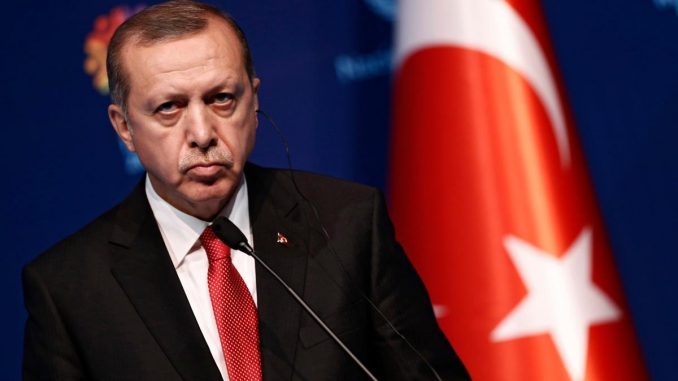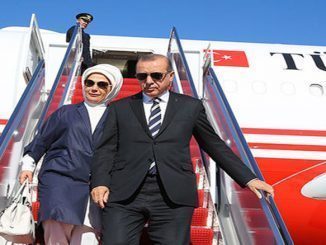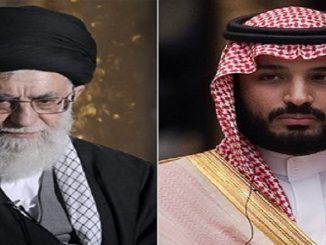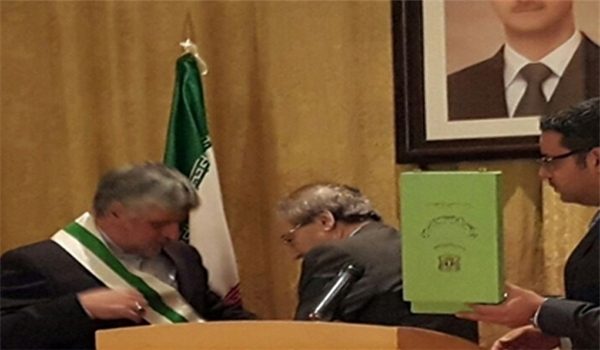
Turkey declaration of ending its military operations in Syria reflects the growing rift with the US, as it is clear the Turkey’s confrontation with the US’ interests in northern Syria led to this back-door exit.
The Washington Examiner made a report about this issue, the deteriorating relation between the two powers, and expected future their cooperation.
The growing rift between the two countries stems from the intractable dispute over the U.S. plan to liberate Raqqa with a loose coalition of Syrian fighters comprising roughly 40 percent Kurdish YPG militia members, who Turkey considers terrorists.
Turkish President Recep Tayyip Erdogan has offered his military to drive the Islamic State out of its self-proclaimed capital in Raqqa, if only the U.S. will quit the Kurds.
Turkey regards the Kurdish Popular Protection Units, or YPG, as an extension of the banned Kurdistan Workers’ Party or PKK, which has been declared a terrorist group by both Turkey and the U.S.
But the Pentagon says the Kurds have proven to be the most battle-hardened and combat-effective force fighting ISIS in Syria, and it has no plans to abandon them now.
Publicly the U.S. says it’s still working with its NATO ally Turkey to find a role for it in the upcoming Raqqa offensive, but here’s the unspoken truth: The U.S. has also judged that the Turkish military is not up to the task, based on its performance in northern Syria.
On Aug. 24, Turkey launched “Operation Euphrates Shield,” sending tank and troops into Syria with the stated objective of pushing ISIS back 60 miles from its shared border, and the unstated goal of keeping Kurdish forces from controlling an unbroken swath of land stretching back into Iraq.
This past week, Turkey declared Euphrates Shield a success and ended the mission, a move Pentagon sources say was in fact largely because the U.S., Russia and Syria stymied the Turkish offensive from any further gains.
The Turks did take the northern Syrian towns of Jarablus, Dabiq and al-Bab from ISIS, but their plan to move against the Kurds in Manbij was foiled when the U.S. positioned Army Rangers just outside the city and declared Manbij was in no further need of liberation.
Meanwhile, Syrian and Russian forces have advanced across the Turkish forces’ southern flank in Syria, effectively blocking any movement south to Raqqa.
Essentially hemmed in with nowhere to go, the Turkish forces called it a day and declared mission accomplished.
Several Pentagon officials said the major U.S. takeaway is that Turkish troops lack the training, logistics and weaponry to successfully launch the siege of a fortified and well-defended city.
Consider that across the border in Iraq, 100,000 Iraqi troops have all they can handle trying to finish off fewer than 1,000 ISIS fighters in west Mosul.
Plus any new Turkish plan to liberate Raqqa would require months of additional planning, allowing ISIS terrorists more time to kill more innocents, while failing to meet President Trump’s goal to speed the defeat of the Islamic State in Iraq and Syria.
As it has become increasingly clear that Washington is slow-rolling Ankara with public platitudes, yet plans to cut Turkey out of the Raqqa offensive, Turkey has been making veiled threats about withdrawing permission for the use of its strategically-located Incirlik Air Base, where most coalition warplanes are based.
In response, some NATO allies are shopping around for other real estate.
A report published in the German daily “Die Welt” this week said Germany has identified eight alternatives to İncirlik. The report said the options include three sites each in Kuwait and Jordan, and two in Cyprus.
The U.S. military has been consistent from the top general down its spokesman in Baghdad that the Kurdish and Arab fighters are the only ones who can get this job done on any reasonable timeline
“With regard to whether the YPG will be a part of the force, I think I’d like to leave it at we would expect Kurds to be involved,” said Air Force Col. John Dorrian, a U.S. military spokesman. “And that’s probably about where we’re at.”



